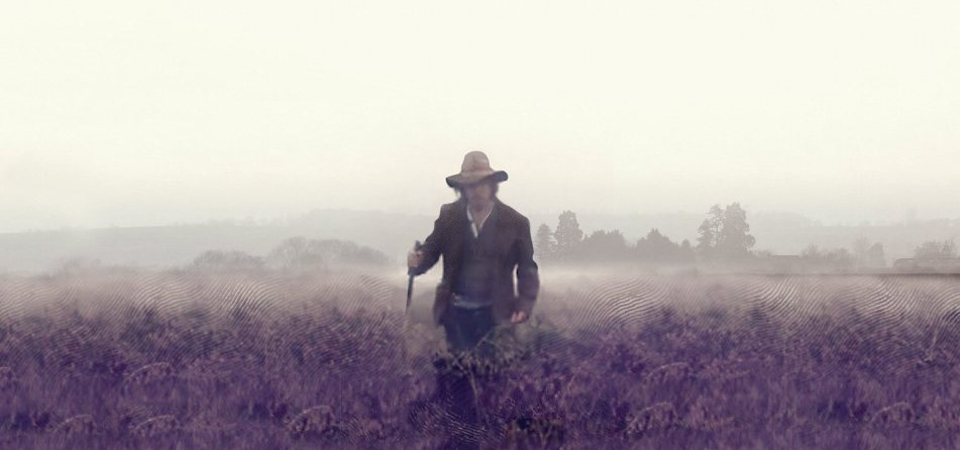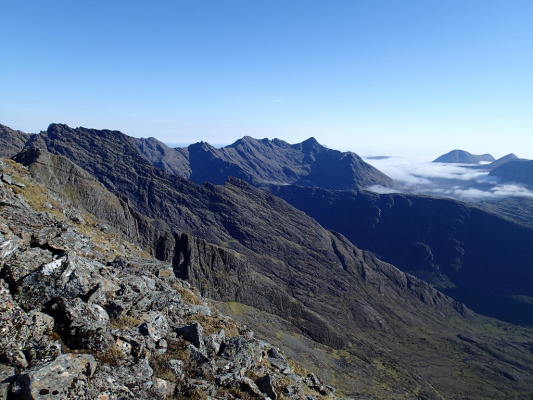- Home |
- Search Results |
- Pathlands by Peter Owen Jones

Between seven and eight million people in the UK go for a walk on any given weekend, many travelling out from cities to walk in the hills and fields. The liberation many people sense from walking all day alone is the freedom from being observed, from being judged. You can sing as loudly as you care to, shout at the wind, lie down and sleep, make love, eat with your mouth open, piss where you want to and you will not be arrested for doing so.
It was the Romantic poets who are the fathers and mothers of today’s walkers. It was Wordsworth, Shelley and Keats who elected to leave the confines of their urban environments and, quite literally, take to the hills to see their humanity reflected in the natural world. Before then, walking was predominantly considered an arduous necessity, though of course there were exceptions. The very un-Romantic Dr Samuel Johnson is known to have rolled down a hillside on one of his country rambles. The Romantic poets changed the nature of walking into an essential experience, seeing it as time out from papers, shovels and smoke, just as for us it is an escape from screens, machines and malls. It was, in part, their reaction to the industrialisation, to pollution of the emerging utilitarian, commercial and industrial society.
The Industrial Revolution fostered the world we live in today, beginning a process that has increasingly distanced human beings from the natural rhythm of the seasons and the apparent inconsistencies of the weather. Factories and offices are environments we believe we can control; they offer a great deal more certainty than the fields. It is easy, perhaps all too easy, to romanticise the natural world and it is one of our most enduring characteristics to see this planet as beautiful. Yet we inhabit a brutal and unpredictable Earth, which has fathered and mothered each one of us. You would have to have a heart of steel not to be enchanted by bluebell woods in May, but you need a heart of steel to traverse the Cuillin Ridge in the midst of a November storm. It is worth remembering that walkers still die each year: some from exposure, some from falls, and some from being attacked by animals as they ‘wander lonely as a cloud’ through their territory.

When we walk, we walk through two landscapes: an exterior land of trees, seas, cities, mountains and fields and along the paths that lead into our own interior world. Whilst we do walk through history, both natural history and the history imprinted on the land by all who have been here before us, most of us do not walk consciously through the past unless, of course, that is what we are looking for. Most of us do not walk knowingly through geology or sociology; we walk to know the present better than we did before – to be brought into its presence. Once we can find the present, we become present. This also means knowing our agendas, hurts, angers and desires.
In that sense, walking can be tremendously healing because it illuminates what we are carrying – the weight of anger, resentment and bitterness, the heavy chains of history. As St Francis of Assisi said ‘Solvitur ambulando’– it can be solved by walking. I have left the house many times embittered, and returned smiling and better able to be generous to those who have caused me pain, whilst appreciating more keenly that I am no different in my capacity to do the same. I also leave the house never quite knowing what I am about to encounter, what I will see, hear, smell; there is nothing perhaps as calming as a still summer’s day – but it can be that only if I can accept its gift. And if there is nothing so melancholic as a sheep standing alone in the rain, there is something so renewing about clouds that pass and leave in their wake a shining new world. Once I am able to see it, to enter the state of wonder, the division between myself and the distant folding land, the cliff s and the dead leaves is dissolved; this state of communion is one of the most profound gifts that walking can give. The reason why so many of us walk is that we return home stilled and renewed but, most of all, we have allowed ourselves, however fleetingly, to wonder – and that, perhaps, is the food the gods are feasting on.